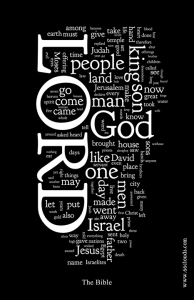 Article: Apologetics and the Unity of Scripture by Dean Davis (original source you’d better make it count.
Article: Apologetics and the Unity of Scripture by Dean Davis (original source you’d better make it count.
So it was with me one day several years back when my father-in-law and I arose from our chairs in a classroom at the local senior center. During the discussion time in a history lecture I had volunteered a brief comment about the Bible’s amazing historical memory; about how the biblical narratives had actually spawned modern archeology, and how archeology, in turn, had consistently vindicated the biblical narratives. I was grateful for the opportunity to speak up, but thought that nothing further would come of it.
How wrong I was.
Immediately after the lecture ended, an agitated man made his way straight for me. Before we could even exchange pleasantries, his question burst forth. “How can you possibly believe that the Bible is the Word of God?” It was not the first salvo in a tirade. He wanted an answer and, with some difficulty, was waiting for it.
How would you have replied? Seeing that your interrogator is upset, that he will stand for no non-sense, and that you doubtless have but one brief opportunity to deposit in his spirit your best single evidence for the divine inspiration and authority of the Bible, what would you give him?
Without pre-meditation–and I hope by the Spirit of the Lord–I gave him my best shot.
“Sir,” I replied, “there is one piece of evidence above all others that persuades me that the Bible is the Word of God. It’s what we call the unity of Scripture. As you may know, the Bible is actually a collection of books–sixty-six of them–written by over forty authors in the course of some 1600 years. And yet for all this diversity, it really is one book. In all of its pages it tells one story, about one God, who sends one Savior into the world, to the gather together one beloved people for His eternal possession. The more you study the Bible, the more you see this amazing, underlying unity. It is so pervasive, so intricate, and so beautiful that no mere mortal could possibly have produced it. Rather, it simply has to be the product of a single divine Mind, working through many different authors. Above all else, it is this astonishing, supernatural unity that persuades me that the Bible is the Word of God.”
And with that, he turned and walked away.
Orders, Orders Everywhere!
I reflect upon this interesting experience with satisfaction. I believe that by God’s grace I really did get off an excellent shot. My words, if quickened by the Spirit, were well able to give this troubled man a glimpse of one of the great supernatural realities in the world today, what I will here refer to as “the biblical order.” In the paragraphs ahead, I want to examine this order in some depth. My hope is that its intricate, beautiful, and majestic unity will not only strengthen your faith in the Word of God, but give you renewed confidence to share that faith with others.
Let’s begin with a few introductory remarks about the common but mysterious and richly significant phenomenon that we call “order.” Continue reading →


